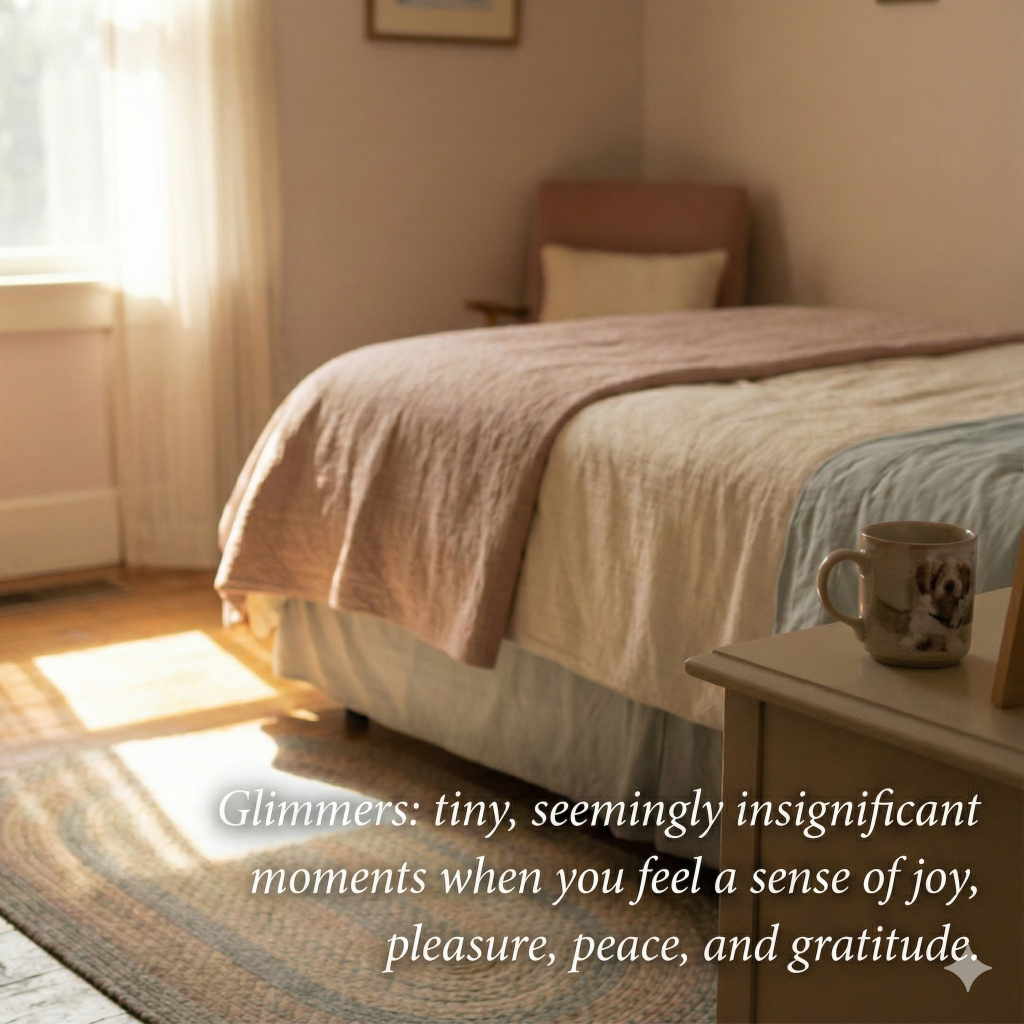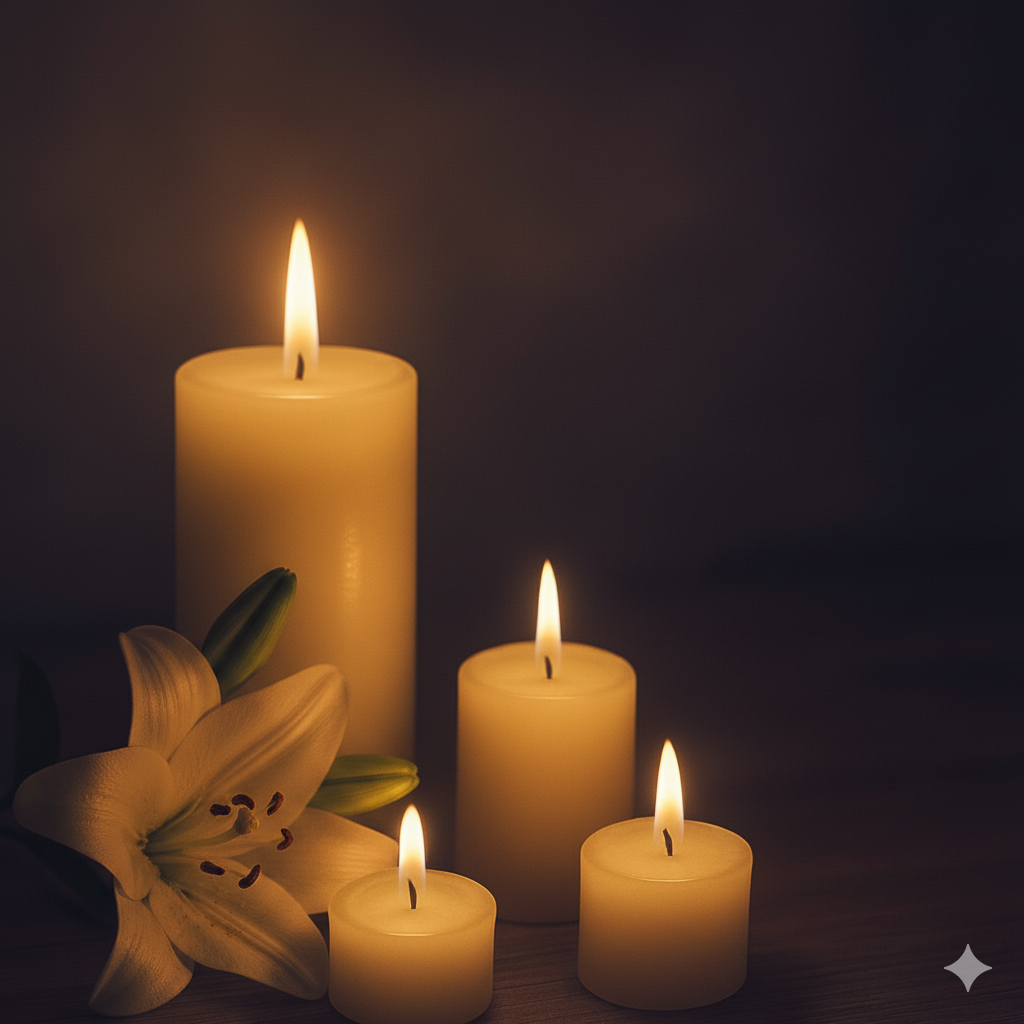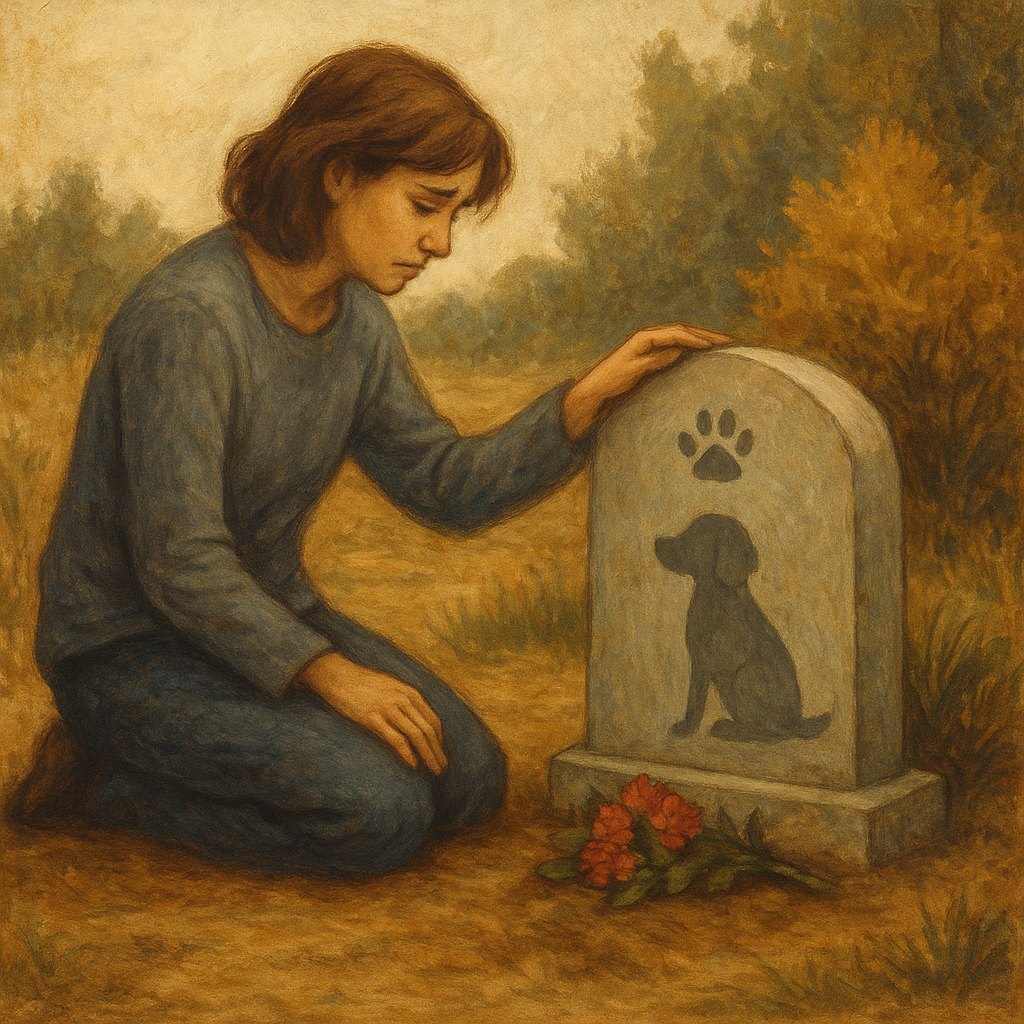Have you noticed that small, simple pleasures give you short moments of relief from your grief, or are you finding it hard to connect with anything outside of your thoughts?
Sometimes, a stream of light hitting the floor, the texture of a blanket, a favourite song on the radio, or the sound of rain as you lay in bed can have the power to pull you into the present for a brief interlude of peace. This is so important when you’re grieving.
In mental health conversations, these moments have a name; they’re called “glimmers” and they describe “tiny, seemingly insignificant moments when you feel a sense of joy, pleasure, peace, and gratitude”. Like a faint or wavering light (the very definition of a “glimmer”) in the darkness, they offer the hope of something better ahead.
People have been talking about glimmers on Instagram and TikTok for the past few months in response to a quote by content creator Glo Atanmo: “Micro joys are how we survive macro grief”.
In other words, when our grief is big, it’s the smallest moments of joy that keep us going.
Is this the case?
Should we be seeking out “micro joys” or “glimmers” when we’re living through the hardest days of grief or is that unrealistic, especially if you feel numb or empty?
Sometimes, joy can feel utterly out of reach, so is this advice a type of “toxic positivity”? Or is there something to be said about connecting with tiny lifelines to a world beyond our grief?
Let’s explore this in today’s post.
When your emotional landscape changed
When you’re grieving a beloved animal companion, the world can feel impossibly heavy. Everyday tasks that once needed no thought can take enormous effort. Colours can seem muted, food tastes different (if you have any appetite), and even time itself can feel strange and stretched.
There’s no denying that grief can be completely disorientating, making you feel like the ground beneath you changed shape overnight or that it could drop away at any moment.
When you’re trying to exist in this new emotional landscape – and dealing with shock, numbness, emptiness, pain, and many other feelings in the process – it can be hard to find space for joyful moments because you don’t have the mental bandwidth or the inclination.
It can even feel like a betrayal of your loved one. You might ask yourself, “How can I be happy when they’re not here?” Many of us have had these thoughts.
If joy feels completely inaccessible right now, no matter how much you want to feel it, that’s understandable. It can be hard to see any glimmers in the darkest days of grief.
When the heart is aching, the things that once brought comfort may not reach you. This isn’t a failure or a sign that you are grieving incorrectly, or that good things are permanently out of reach. It’s simply a sign that your whole being is trying to survive something enormous.
Grief is not only emotional. It’s physical, mental, social, and spiritual.
In the early stages, the nervous system is overwhelmed, the appetite often disappears, sleep becomes uncertain, and thoughts can circle around your animal friend with painful intensity. In such a state, joy may not settle anywhere inside you. It can slip straight through the cracks that loss has opened.
What if we see glimmers as moment of peace?
What can help during this tender time is not joy, but something much quieter and gentler, but possibly more soothing. A moment of relief, a tiny pause, a softening, a breath that arrives without effort; a practice of tending to yourself in the smallest possible ways.
These moments don’t need to be bright or happy. They don’t even need to lift your mood. They simply need to be kind, creating small places where the nervous system can rest for a heartbeat or two.
This might look like:
- Wearing a clean jumper and inhaling the freshly laundered smell
- Sitting with a warm drink in a favourite mug
- Lighting a candle and watching the gentle flicker of the flame
- Wrapping yourself in a blanket that feels safe
- Opening the window for a few moments of fresh air
- Noticing the softness of your pet’s fur on a keepsake
- Touching a collar, feather, or pawprint as a grounding gesture
- Listening to a familiar sound that steadies your breathing
- Allowing your tears to come instead of pushing them away
None of these small comforts change the fact that your beloved friend is gone. They’re not meant to. What they can do is offer a tiny island of steadiness in a storm that feels unrelenting.
As we explored in our blog on self-care after pet loss, meeting your basic needs during grief is an essential act of compassion. Eating when you can, drinking water, resting, stepping outside for a moment, seeking support if you need it. These aren’t trivial things. They’re essential lifelines while your heart is trying to absorb a painful change.
Moments of ease can help life to grow around your loss
Sometimes people worry that if they feel even the slightest sense of peace, it means they’re moving on from their animal friend, which can be a painful thought.
In truth, these moments don’t move you away from your love; they help you recognise that love stays with you. It’s this understanding that will help you to move forward without leaving anything behind.
A moment of peace is simply a sign that life is stretching very gently around your loss. It doesn’t mean that the grief will disappear, but it shows you that life can continue with grief as part of it.
There’s no requirement to feel joy before you’re ready
Joy will return in its own time. It may sneak up on you or feel unfamiliar at first. Joy can even feel disloyal or frightening after deep grief. Remember, there’s no right or wrong way to feel.
Until then, micro-peace is enough. If you wake at four in the morning and can’t get back to sleep, it’s enough to sit somewhere quiet, wrap up warm, and breathe. It’s enough to choose tissues that are gentle on your skin when you can’t stop crying, or to close your eyes for a few seconds and allow yourself to feel supported by the chair beneath you.
This is how the heart begins to mend. Not through pressure to feel better, but through tenderness, repetition, and compassion.
Your bond continues, even in these quiet moments
In our blog on grief without belief, we explored the idea that your animal friend’s influence doesn’t disappear. The energy of their life continues in the world, and the love you shared continues inside you in ways that shape who you are.
A moment of peace can become a moment of connection. Not because you are trying to feel something, but because the love you shared is part of your inner world now. A familiar sound or smell, a memory, the softness of a favourite chair, or the comfort of a routine you once shared can bring a sense of closeness that’s gentle and grounding.
If you feel like you want to find glimmers in your day to tap into this sense of connection, you may need to seek them out. You can do this by:
- Setting an intention: You could make it a goal to spot one glimmer today before you go to bed – it could be as simple as noticing how comforting it feels to pull the duvet over you!
- Practising mindfulness: If you close your eyes, what can you hear? Is there a sound in your surroundings that feels safe and familiar?
- Paying attention to glimmers when you notice them: If you do find a glimmer in your day, how does it make you feel? What happens to your body?
- Logging your glimmers: Glimmers can be hard to keep hold of because of their fleeting nature – write down the things you notice, so you can reflect on them when you need comfort.
- Spotting patterns: Over time, you may notice that you find particular things comforting or helpful. For some people, glimmers take the form of music; for others, it’s a walk in nature, or a beautiful garden. Glimmers can be snippets of conversation, the TV programmes that feel like a hug from an old friend, our favourite clothes, the smell of freshly brewed coffee. If you can spot a pattern to your glimmers, you may learn where to look for more of them.
Whatever you are feeling is valid
Grief expresses itself differently for everyone. Some people cry often, others feel numb. Some need to talk, while others need to be alone with their thoughts. Our blog on instrumental and intuitive grieving explains that we each have different ways of coping, and those ways can shift from day to day.
There’s no single path through this, and there’s no timeline you must follow. If joy isn’t possible right now, hold on to this truth: you’re not expected to feel it or even to reach for it.
Moments of rest and self-care are enough. All you need to do is take life one small step at a time, even if that means focusing on the next minute or hour for now.
Little by little, your heart will make more space for living
One day, perhaps when you least expect it, you may notice something that warms you. A memory that brings a small smile along with the tears. A sound or colour that feels comforting. The sense of your animal friend close to you in a new way. These gentle beginnings don’t replace grief. They sit beside it.
Grief is love, reshaped. Love doesn’t disappear, and neither does the bond you shared with your animal friend. Over time, your heart finds new ways to hold both the sorrow and the moments of ease.
And until joy feels possible again, we hope you can allow yourself the smallest possible kindness. A breath. A pause. A moment that softens the edges.
You are not alone in this.
We are holding you gently in our thoughts.
Shailen and The Ralph Site team
The Ralph Site, non-profit pet loss support




